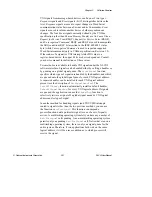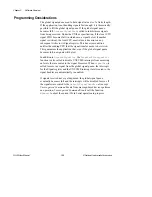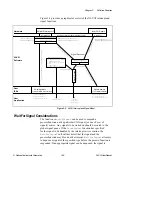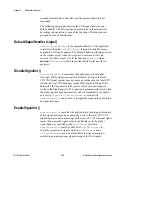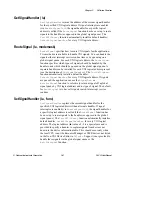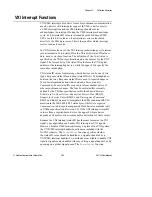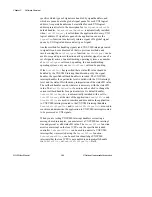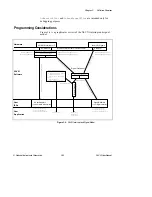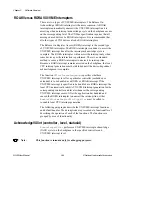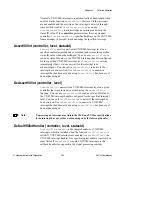
Chapter 3 Software Overview
© National Instruments Corporation
3-33
NI-VXI User Manual
SetPrivilege (window, priv)
SetPrivilege
sets the VXI/VMEbus windowing hardware to access
the specified window with the specified VXI/VMEbus access privilege.
The possible privileges include Nonprivileged Data, Supervisory Data,
Nonprivileged Program, Supervisory Program, Nonprivileged
Block, and Supervisory Block access. The application must have
Owner-Access Privilege to the applicable window for this function to
execute successfully. Notice that some platforms may not support all of
the privilege states. This is reflected in the return code of the call to
SetPrivilege
. Nonprivileged Data transfers must be supported
within the VXI/VME environment, and are supported on all hardware
platforms.
UnMapVXIAddress (window)
UnMapVXIAddress
reallocates the window mapped using the
MapVXIAddress
function. If the caller is an Owner-Privilege accessor
(only one is permitted), the window is free to be remapped. If the caller
is an Access-Only Privilege accessor, the window can be remapped
only if the caller is the last Access-Only accessor. After a call is made
to
UnMapVXIAddress
, the pointer obtained from
MapVXIAddress
is
no longer valid. You should no longer use the pointer because a
subsequent call may have changed the settings for the particular
window, or the window may no longer be accessible at all.
VXIpeek (addressptr, width, value)
VXIpeek
reads a single byte, word, or longword from a particular
address obtained by
MapVXIAddress
. On most platforms using
C language interfaces,
VXIpeek
is a macro. It is recommended,
however, that you use
VXIpeek
instead of a direct dereference of the
pointer, as it supports portability between different platforms and
programming languages.
VXIpoke (addressptr, width, value)
VXIpoke
writes a single byte, word, or longword to a particular
address obtained by
MapVXIAddress
. On most platforms using
C language interfaces,
VXIpoke
is a macro. It is recommended,
however, that you use
VXIpoke
instead of a direct dereference of the
pointer, as it supports portability between different platforms and
programming languages.



















